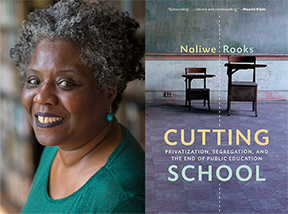New Report Uncovers Systemic Failure by California Charter Schools to Meet Local Control Obligations
A new report by Public Advocates Inc. uncovers a massive failure on the part of California charter schools to be transparent about how they spend millions of taxpayer dollars to benefit high need students, as required by state law.
The report, which is the first systematic analysis of charter school Local Control Accountability Plans (LCAPs) found critical financial and engagement information missing, unavailable, or incomplete at a shocking number of charter schools.
Not a single school analyzed for this report properly documented how it was increasing or improving services for high need students, services for which those charter schools received $48.6 million this past year. Even more concerning, two-thirds of that amount was completely unaccounted for. Statewide, charters receive over $900 million annually to increase or improve services for high need students.
The report, “Keeping the Promise of LCFF in Charter Schools,” included an investigation 43 schools in Oakland, Sacramento, Richmond, Los Angeles, and San Jose and found that:
- One-third of all charter schools examined had no LCAP online. These public documents were still missing after email requests to the school, its authorizer, and the County Office of Education
- More than two-thirds of the state funds generated by high need students—over $30 million—were unaccounted for; of the $48.6 million these schools received specifically for high need students in 2017-2018, there was only documentation for $15.8 million in planned spending
- Only 21% clearly measured how they engaged parents in school decision-making, and only 37% described how community engagement impacted their planning process
- 91% of charter schools examined serving 15% or more English learners did not post their LCAPs in a language other than English
- Of the 12 Charter Management Organizations examined in the report and that manage 123 charter schools in multiple cities, 100% adopt LCAPs at a single meeting in a single location, with minimal public comment
The report calls for expert oversight and improved support over charter school LCAPs, especially when it comes to transparency for funds designated to improve services for high need students. The report also recommends legislation that would holds charter schools to similar standards of transparency and engagement as public schools.
Click here for a copy of the report
Click here for a list of the charter schools investigated for this report
Click here for a copy of the press release in English
Click here for a copy of the press release in Spanish
Click here for a list of the charter schools investigated for this report
Click here for a copy of the press release in English
Click here for a copy of the press release in Spanish










